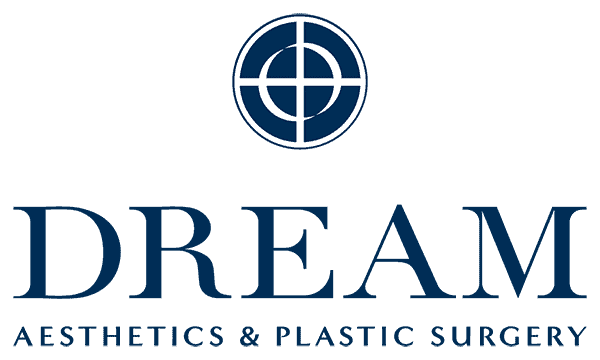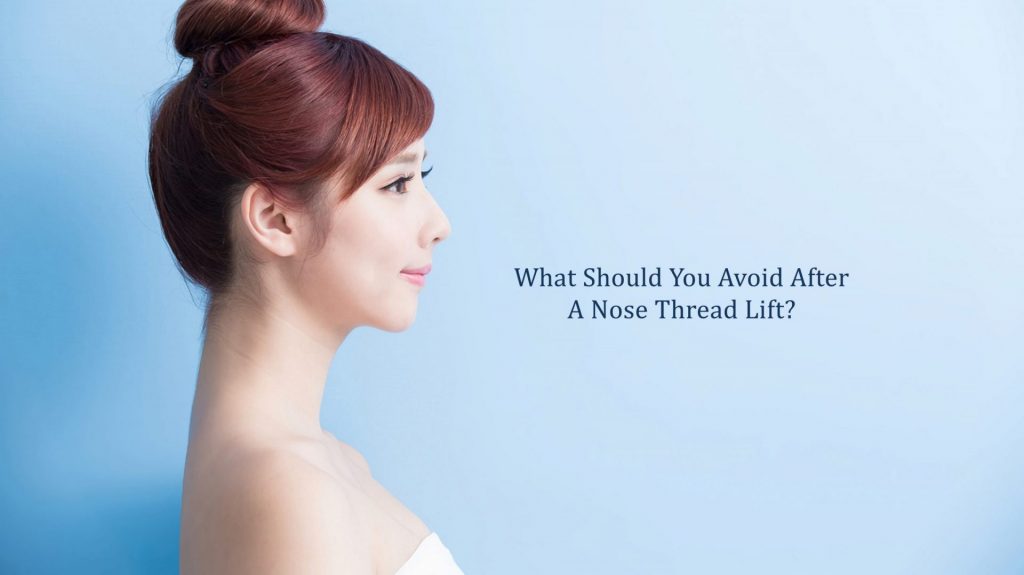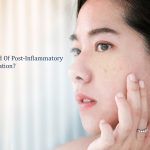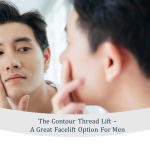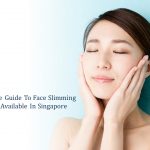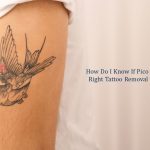Surgical solutions such as rhinoplasty usually require strict after-care of the operation site to avoid complications and to get the desired results. Moreover, cosmetic surgeries take weeks or months before full recovery.
In contrast, nose thread lift is a non-surgical and minimally invasive treatment done to improve the shape and contour of the nose. It does not involve long cuts and incisions. The chances of serious complications are also much lower. It is favored for producing immediate results with almost no downtime and is a relatively quick procedure that can be done over lunchtime.
How Does Nose Thread Lift Work?
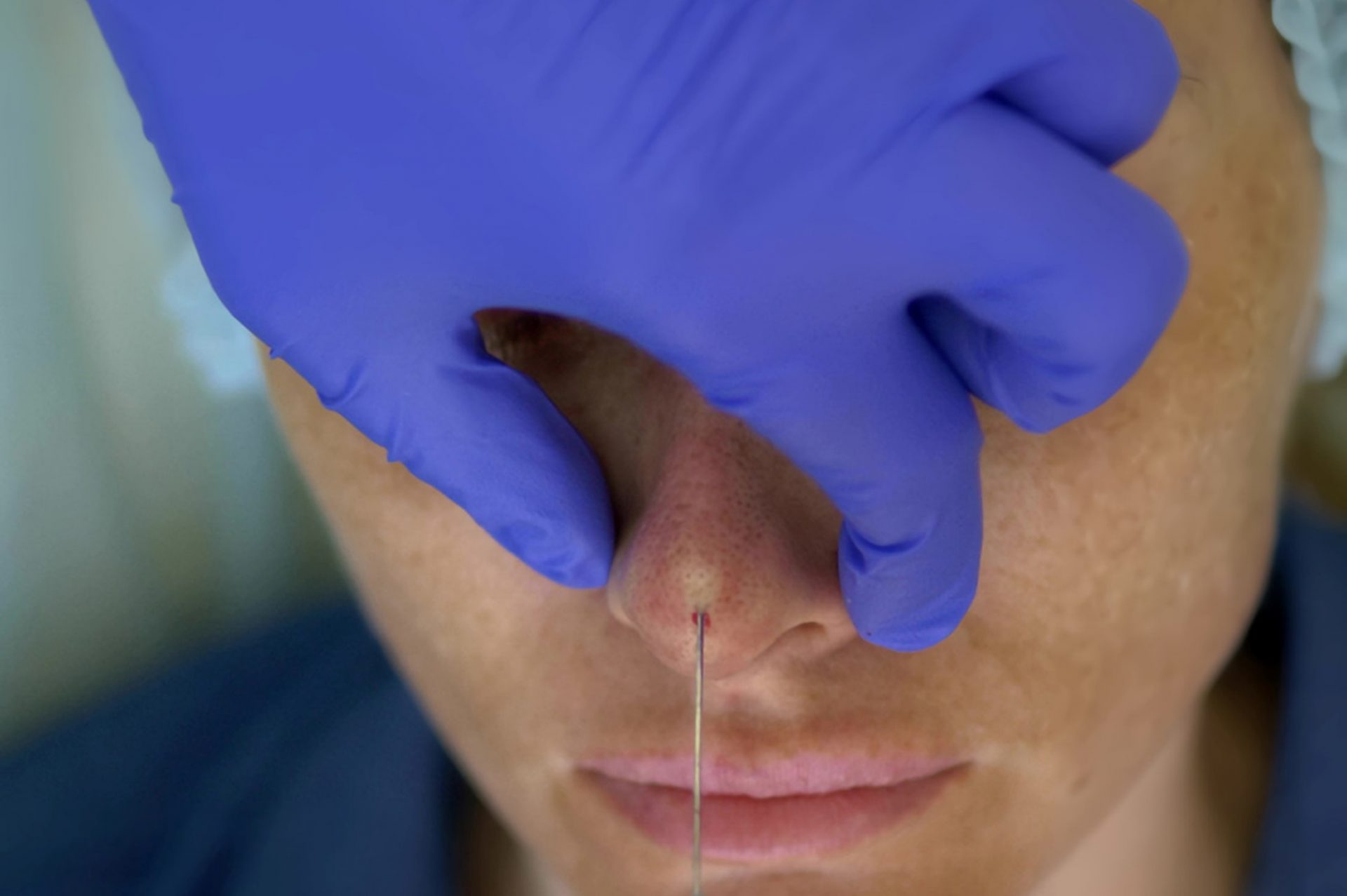
A systemic approach is taken during the procedure.
- The doctor does a careful assessment to determine what corrections are needed to make your nose look better, and how many threads will be required for this purpose.
- On the treatment day, your nose will be thoroughly cleaned to alleviate the risk of infection.
- To make the procedure painless, your nose will be numbed with the help of topical numbing cream and a local anesthesia injection.
- The doctor creates entry points for the Hiko threads by using a small needle.
- With the help of a blunt cannula, threads are inserted along the nasal bridge and septum, and vertically in the tip of the nose.

The threads mechanically lift the nose bridge and tip and maintain the shape and contour of the nose in the desired state. These threads also stimulate local tissues to produce collagen which further augments the height and projection of the nose. Consequently, significant improvements are seen and your nose looks taller, slimmer, and sharper.
Although the downtime of nose thread treatment is almost negligible, knowing what to expect for recovery after nose thread lift is important to achieve optimal results. There are certain things that you should not do after getting this treatment. These are described below.
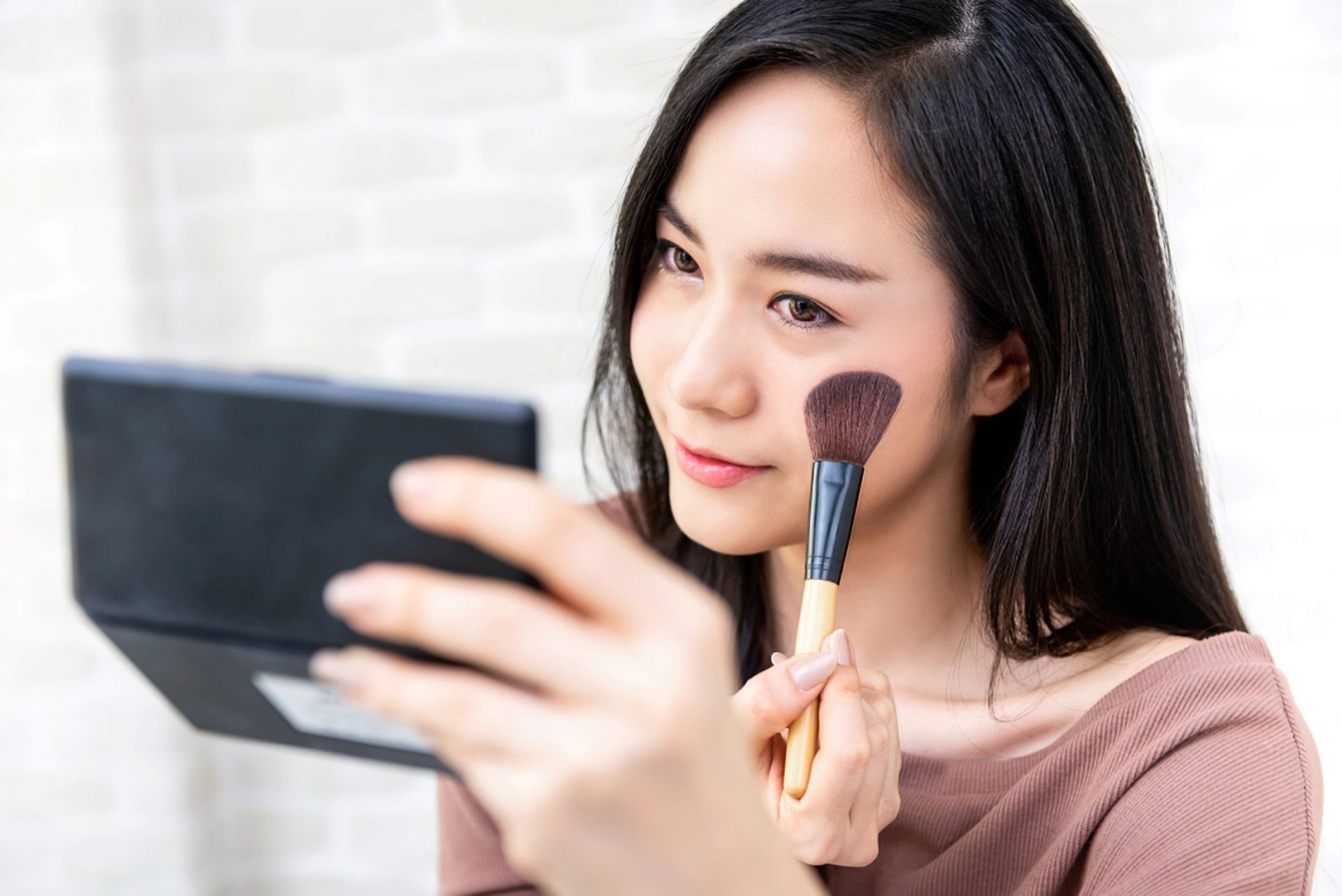
Putting On Makeup
You should not apply makeup on your face for at least 48 hours after the nose thread lift treatment. There are several reasons behind it which include;
Skin sensitivity – Your skin is highly sensitive in the first several hours after the procedure. Even those beauty products that usually cause trivial irritation on your skin on routine days should be avoided.
Preventing infection – At the end of treatment, small wounds are present at the tip of the nose which represents the entry points of threads. These wound sites are liable to infection. Applying makeup increases the risks of such complications.
Pressure – Applying too much pressure while wearing or removing makeup can disturb the placement of nose threads, and the desired results will not be achieved.
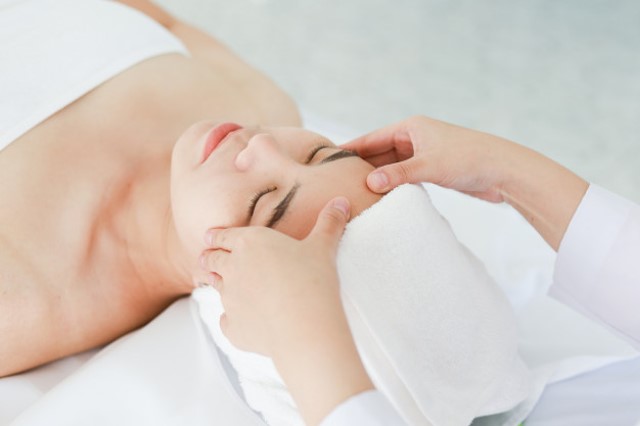
Having Facials And Facial Massages
Like makeup, facials and facial massage should not be done after the Hiko nose thread lift for some time. Doctors recommend avoiding it for at least 14 days.
It is so because in facials and facial massage, pressure is applied on your skin and there are chances of displacing the Hiko threads. Plus, the risks of swelling and bruising also increase with these kinds of practices.
Moreover, facials often involve the application of aesthetic products and strong chemicals that may irritate the wound sites and cause inflammation.
Making Extreme Facial Expressions
Some individuals may experience tightness around the nose after treatment which is expected as mild swelling can contribute to that sensation. When you make extreme facial expressions like cringing or showing anger, it causes bigger movements of the facial skin. It can disturb the placements of threads, affecting the end results.
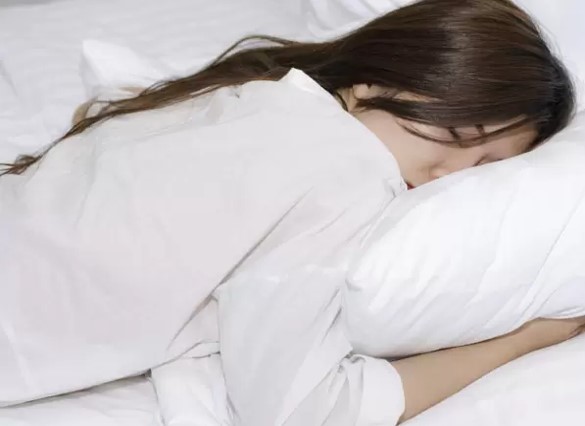
Sleeping On Your Belly Or Side
During sleep, when you lie in the prone position (over your stomach) or on the side, your face presses against the pillow. This may exert excessive pressure on your face. Like we have discussed so far, excess pressure is not ideal for the Hiko nose thread lift recovery, therefore, these sleep positions should be avoided for a minimum of 5 days after the treatment.
If these are your usual sleep positions, or if you have the habit of shifting sides throughout the night, you should practice sleeping on your back, for a few weeks, before having this Korean thread lift procedure.
If the habit persists despite the practice, you can use a recliner to lessen the risk of sleeping on your side, after the treatment.
If this does not work, you can also place rolled towels, cushions, or things like that, around in your bed to keep yourself from tossing and turning during sleep but make sure that these things should not press against your face.

Smoking
Smoking is also prohibited after the nose thread lift because it;
Elevates blood pressure – The nicotine present in cigarettes has been found to raise blood pressure. [1] This may worsen the bruising of the wound sites.
Constricts blood vessels – Nicotine also acts as a vasoconstrictor, which means it constricts blood vessels. [2] As a result, the nutrients cannot reach your skin efficiently due to compromised blood flow. As nutrients are essential for healing, smoking can slow down recovery.
You should also avoid the use of alternatives such as nicotine gums or nicotine patches, to keep yourself away from smoking after the treatment because these products also contain nicotine.
Alcohol
You should not drink alcohol for at least 14 days after having Hiko thread lift because alcohol;
Acts as a diuretic – It increases the urine output. [3[ The excessive water and nutrients essential for the healing process of the skin, are excreted out of your body as a result of this diuretic effect of alcohol.
Increases blood pressure – Alcohol also elevates blood pressure. High blood pressure, like discussed before, can exacerbate the bruising which usually occurs after the Korean thread lift.
Fish Oil Supplements
Fish oil acts as a natural anticoagulant, which means it prevents your blood from clotting. [4] Because clotting is the process that limits the bleeding to spot bruises in the nose thread lift treatment, therefore, omega fish oil supplements should be avoided before and after the procedure as it may aggravate bruising at the wound site.

Intense Physical Exercise
Vigorous exercise also increases your heart rate and blood pressure. Therefore, it is recommended to avoid intense physical exercises like running, weightlifting, cycling, etc, until your thread lifts sites are healed completely. However, moderate activities like walking and light stretching can be done.
Similarly, doctors advise you to skip yoga for 7 days. Although, yoga does not appear as intense physical activity, however, many of its positions require you to keep your head below your heart level. This elevates blood pressure in the head.
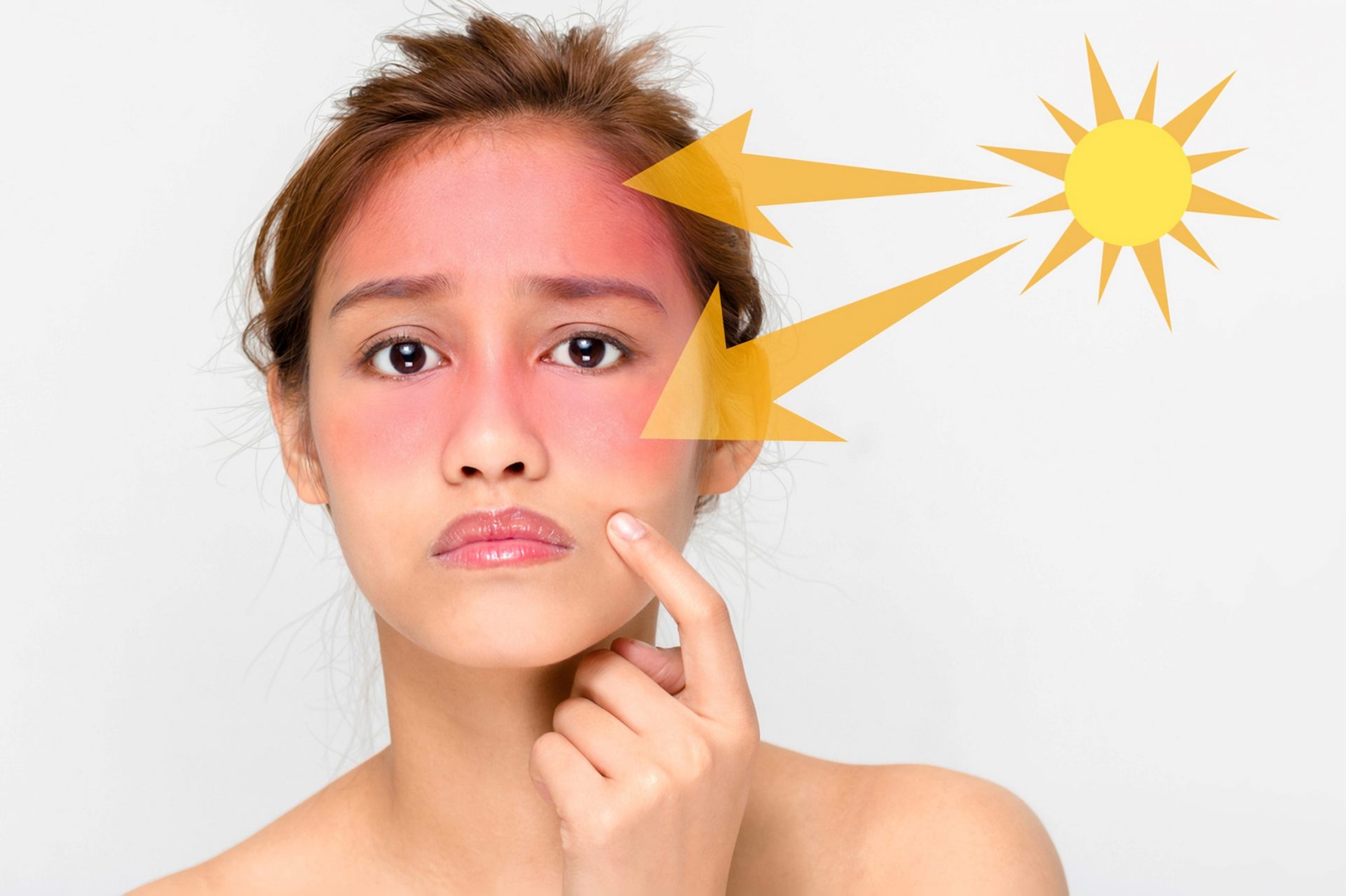
Excessive Heat Exposure
Surprisingly, excess heat exposure also raises blood pressure. Sunbathing, steam rooms, dry saunas, hot showers, or anything that involves exposure to heat should be avoided after the treatment.
Instead, maintains your blood pressure and keep your body from overheating. Staying hydrated, for example, helps you to keep your body cool.
Schedule Important Events Later
Although there is almost no downtime involved, the procedure still involves needles and side effects similar to an injection can still happen. Swelling and bruising may happen in a small percentage of patients after Hiko nose thread lift. That requires a week or two before complete recovery. Hence, to make sure that your face looks perfect for the upcoming social event, you should schedule any important events two weeks after having this treatment. Giving your body ample time to rest and recover takes unnecessary stress away.
Swimming
Swimming is also prohibited. There are two reasons behind it. First is the water. Your face should not get wet for at least 12 hours after the treatment. Second is the potential exertion associated with it which increases the blood pressure. It is recommended to not go for a swim for about two weeks after nose thread lift.
Sex
Sexual activities should be avoided as they also involve a high level of exertion. You can return to your normal sex life one week after the procedure.
Bottom Line
Nose thread lift treatment is a quick non-surgical procedure to improve the appearance of the nose with almost no downtime and a very short recovery period. But certain things should be avoided to get the optimal results. Consult your doctor to get information about the aftercare of nose thread lift treatment.
About Dream Aesthetics and Plastic Surgery
Bespoke surgical for cosmetic or medical reasons is what Dream covers to bring out the beauty in every individual. Going beyond the aesthetics and working on physical anomalies are what we value the most in leading our patients to cherish self-improvement and confident lifestyles.
Derived from Associate Professor Vincent Yeow’s long-standing experience performing plastic surgery in Singapore, our treatment plans deliver physical remodelling in our patients’ favour. One of the notable remodellings is droopy eyelid correction. The ptosis surgery used for treatment eventually fixes drooping eyelids, improves vision and enhances appearance.
Most importantly, as a trustworthy plastic surgery and aesthetic clinic, we treasure positive and natural outcomes for each individual. We will ensure to deliver the beauty refinement of your dream without compromising your safety and privacy.
